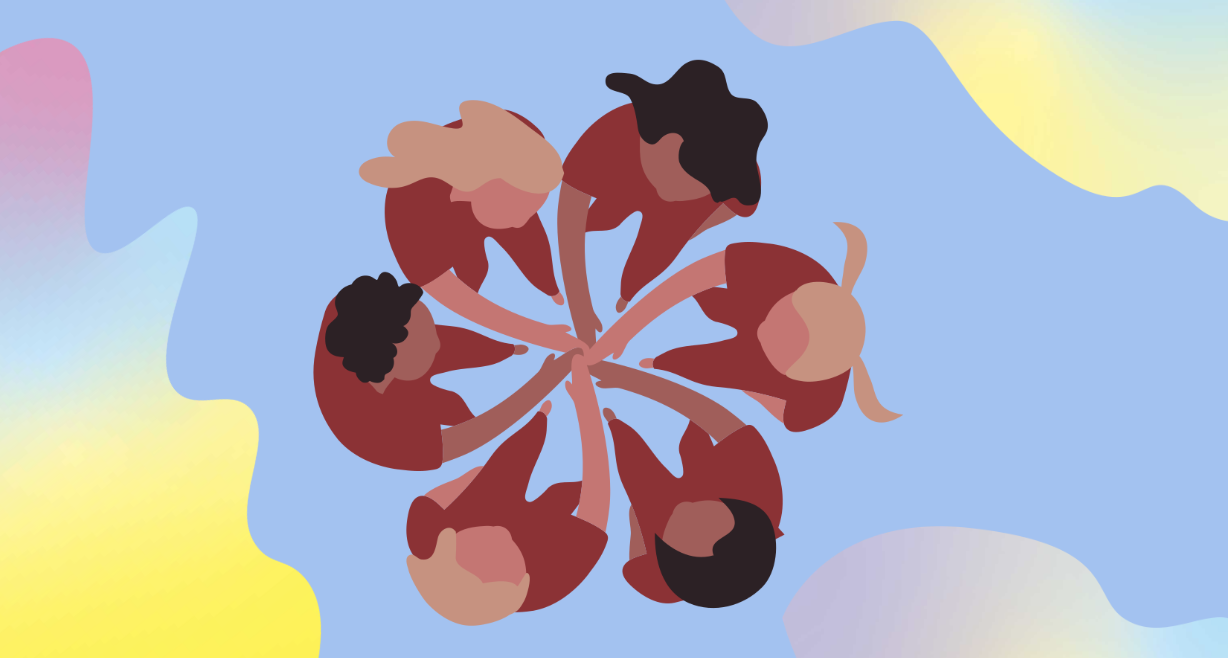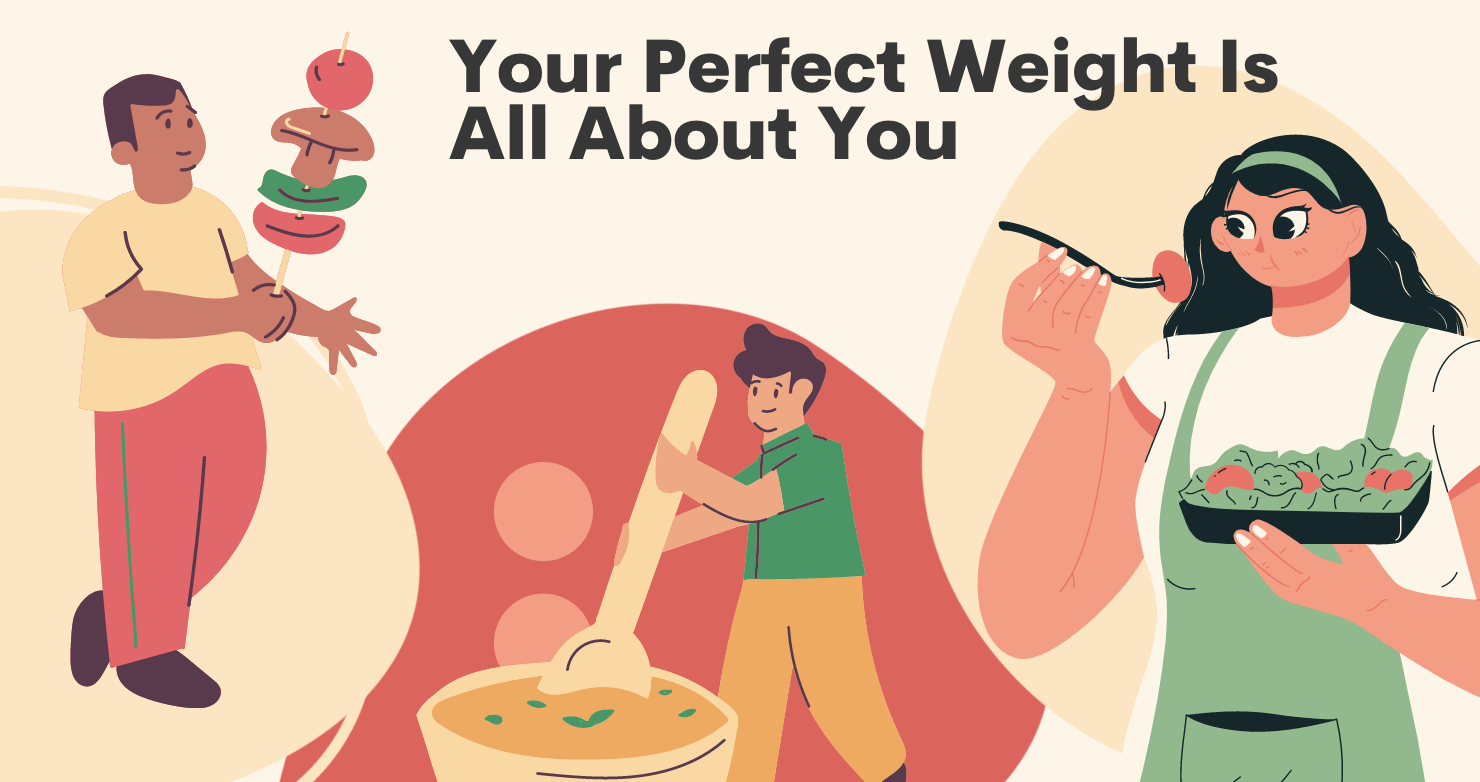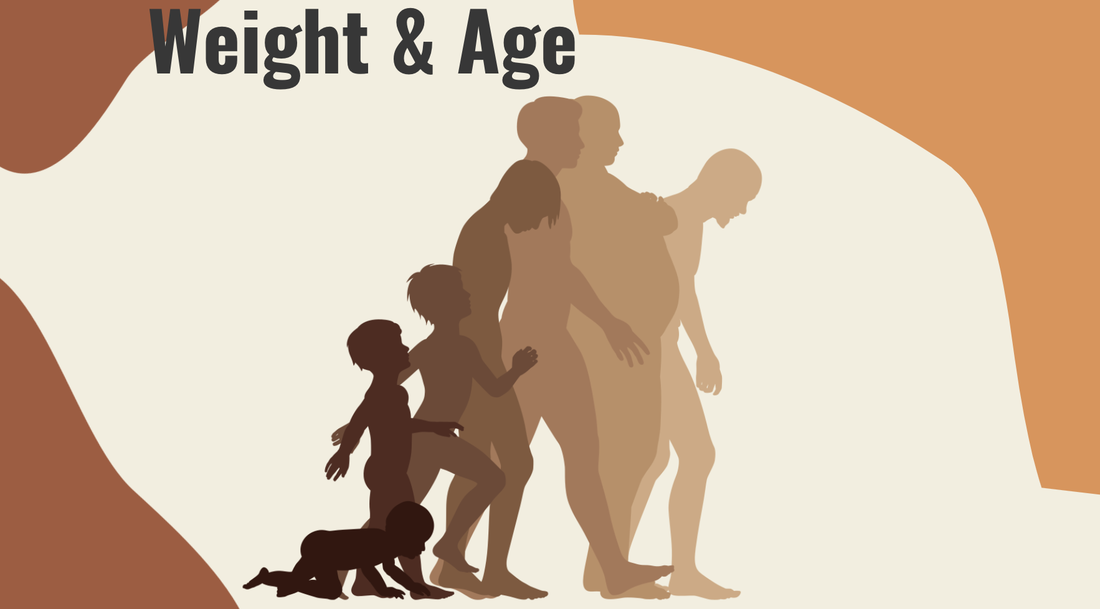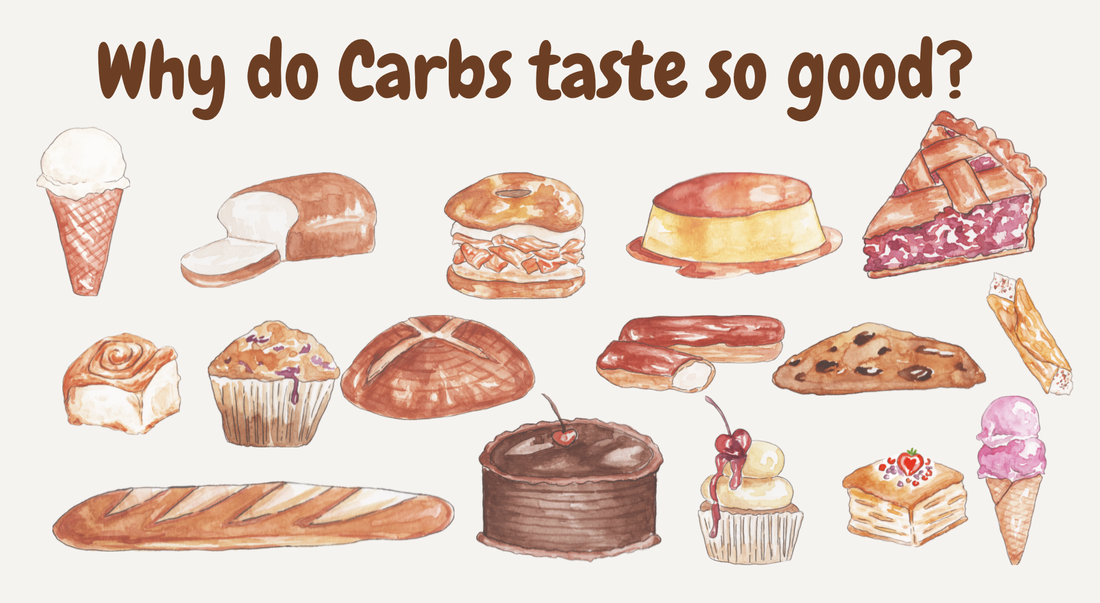|
A special message from John de Graaf, co-founder of the Happiness Alliance and founder of And Beauty For All:
I'm excited to report that the Happiness Alliance’s Happiness Index survey now contains a question helping to measure the connection between beauty (landscape and built environment) and happiness or wellbeing. I’ve argued for some time that this is an important connection. An extensive Gallup study (Soul of the Community) and another by the University of South Carolina (Untangling what makes cities livable: happiness in five cities) and The Beauty-Happiness Connection) have established a strong connection between the "aesthetics" of a community and the life satisfaction and attachment to the place of its residents. A study in Vienna, Austria found that people walking through areas of parks and green spaces report higher happiness and have lower cortisol levels (Green Space and Stress: Evidence from Cortisol Measures in Deprived Urban Communities). Another extensive study using the Mappiness app in the UK showed higher levels of everyday life satisfaction in places thought to be aesthetically pleasing by a large study of preferences using photos of places (Happiness is Greater in Natural Environments). And a series of studies in Philadelphia (To Combat Gun Violence, Clean Up the Neighborhood) showed a major drop in crime, decrease in mental illness and increase in community trust where ugly, littered, lots and abandoned homes in the city were converted to parks and gardens. And there's lots more evidence!
1 Comment
Guest post by David Wilson of happylifeguru.com.Anxiety disorders are the most common mental illness in the United States, affecting 40 million adults in the US age 18 and older. That's 18% of the population! If you are one of the millions of people who suffer from anxiety attacks, you know how debilitating they can be. Anxiety is often not associated with happiness, but it plays a significant role. This is why the Happiness Index includes a question about anxiety alongside the question about how happy you feel. Medically, anxiety is has a similar impact on the mind and body as depression, and can be thought of as form of depression when chronic. In this blog post, we will discuss 10 effective ways to get rid of anxiety attacks and live a happier life! Number 1: Accept the feelingsThe first step to getting rid of anxiety is to accept the feelings. Anxiety is a normal emotion that everyone experiences at some point in their life. It's important to remember that you are not the only person who feels this way. There is nothing bad about anxiety. We sometimes need anxiety to prepare our bodies for a stressful situation, but sometimes we have too much anxiety, whether because of too many things in life that are stressful or a past trauma causes ongoing anxiety, and then anxiety can be debilitating and harmful to your health. This happens also when anxiety is chronic. When anxiety gets bad once it starts to interfere with our daily lives, our happiness and health. That's when it becomes a problem. Number 2: Don't try to control everythingThe second way to get rid of anxiety is to stop trying to control everything. We can't control everything in our life, no matter how hard we try. This is something that we need to accept. Trying to control everything is a major cause of anxiety. It's important to learn to let go and accept that some things are out of your control. This tip can be particularly useful when you feel anxiety because of a lot of things, or a life-changing event, that are not in your direct control, such as the loss of a job or relationship, moving, the death of a loved one, or other circumstances and situations. Number 3: Avoid drugs and alcoholThe third way to get rid of anxiety is to avoid recreational drugs and alcohol. Drugs and alcohol can actually make anxiety worse. They can also lead to other problems, such as addiction, which can contribute to anxiety. Avoiding recreational drugs and alcohol if you suffer from anxiety can be very hard, because you may feel relief from your anxiety when you have a smoke, hit or drink. The problem is that once you are no longer high or tipsy, the anxiety comes right back, and when it is chronic, it can get worse and worse over time This is how recreational drugs or alcohol can make a problem worse. There are medications that can be very helpful in managing anxiety that your doctor can prescribe. Medications give your body - and your mind- a break from anxiety. They are particularly helpful in conjunction with talk therapy, which helps to understand the root cause of your anxiety and find ways to resolve it. Sometimes, as in the case of past trauma, this is talk therapy. Sometimes, as in the case of over-working or a bad boss, this is making a life change. Number 4: Get rid of negative thoughtsThe fourth way to get rid of anxiety is to get rid of negative thoughts. Chronic anxiety can cause a feedback loop that causes more anxiety and lots of negative thinking y. If you can learn to change your thinking, you can change your anxiety. Learning how to change your thinking often takes understanding why you are thinking a certain way and a lot of awareness of your own thoughts, Mindfulness can be a very helpful way to develop awareness of your thoughts, and talk therapy can be helpful in understanding why you thing the things you do, Negative thoughts are usually based on fears and other negative feelings.. When you talk about your feelings, they become clearer to you, and when you do not talk about them, the thought that fuel them can become exaggerated and then the feelings grow. Sustainably replacing negative thoughts with positive ones without awareness of when negative thoughts arise combined with compassionate understanding of why they arise is often not possible. NOTE: If you have thoughts about suicide, contact a crisis line or call 911. Number 5: Change your lifestyle habitsThe fifth way to get rid of anxiety is to change your lifestyle habits. Unhealthy lifestyle habits can make anxiety worse. This includes things like poor diet, lack of exercise, and not getting enough sleep. It's important to make sure that you are living a healthy lifestyle if you want to reduce your anxiety. Eating a healthy diet, exercising regularly, and getting enough sleep are all important. The most profoundly important thing you can do is get enough sleep. If you suffer from insomnia (not being able to get to sleep, or waking up too early and not being able to get back to sleep - the latter of which is often called stress anxiety), medical interventions can be a tremendously helpful, Your doctor can help you find a medication that you can use for a period of time that is not addictive. Another profoundly helpful habit is to get 15 minutes of cardiovascular exercise a day. You can join friends and go for a run, or just go for a walk in the nature. Just enjoy moving your body. Number 6: Seek professional helpThe sixth way to get rid of anxiety is to seek professional help. If you find that your anxiety is interfering with your daily life, it's important to seek help from a mental health professional. There are many different types of treatment available for anxiety. Talk therapy is where you talk about your feelings, thoughts, dreams and reflections to gain insight and develop awareness. An important aspect of talk therapy is the therapeutic relationship, which gives you the experience of a healthy caring relationship, It is important to find a therapist whom you trust and does not judge you, and you feel likes you. With the changes in the healthcare system due to Covid, there are more talk therapists available online. Mindfulness is another powerful intervention, whereby you develop awareness of and insight about your feelings, thoughts and patterns, as well as compassion for yourself. There are many different resources for learning mindfulness online, The trick is to find the one that best suits you. Some talk therapist integrate mindfulness into their therapy too, Cognitive-behavioral therapy (CBT) can be anie t effective treatment in combination with talk therapy and mindfulness. CBT can help you to change the way you think about anxiety and how you react to it. Number 7: Take Care of YourselfThe seventh way to get rid of anxiety is to take care of yourself. This includes things like eating a healthy diet, getting enough exercise, and getting enough sleep. It's also important to find ways to relax and de-stress. Self care is crucial for a happy life, yet something many people put last, particularly if they value helping others. Putting yourself last can cause anxiety in the long run, and leaves you less able to help others. Self care is not selfish, it is actually generous. Do a wellness day and just live life a little bit. There are many different things that you can do to take care of yourself. Find what works for you and make sure to do it on a regular basis. Number 8: Connect with othersThe eighth way to get rid of anxiety is to connect with others. Social support is one of the most important things for all people whether plagued by anxiety or not because humans are evolutionarily designed to need other people. Connecting with others can help you to feel less alone and more supported. Make sure to spend time with friends and family who are loving and supportive to you, and to whom you are loving and supportive to. You can also join a support group, such as Al-Anon (which is for people who have problems with codependency, or see a therapist. Number 9: Practice Relaxation TechniquesThe ninth way to get rid of anxiety is to practice relaxation techniques. This includes things like deep breathing, progressive muscle relaxation, and visualization. Mindfulness, yoga, dancing, playing sports, singing, walking, hiking, boating, fishing and other activities can be helpful to relaxation. You can find lots of resources for yoga and other activities online - on YouTube and other sites. Relaxation techniques can help you to feel more relaxed and less anxious. They can also help you to sleep better. These nine tips are just a few of ways to alleviate anxiety. The best ways for you to alleviate your anxiety is based on your preferences, genetics, life circumstances, and is unique to you. Try out different things and see what works for you. Remember, it is always a good idea to seek professional help if you find that your anxiety is interfering with your daily life. You can talk to your doctor and/or find a therapist. We hope you liked this blog post. If you have any questions, please feel free to contact us. Thanks for reading!
Grief comes from many sources - the death of a loved one, the loss of a job, the breakup of a relationship, realizing a truth that you wish were different, a traumatic experience - and it also has many manifestations. There is grief that never or barely shows up in tears. This type of grief that can hum along, barely noticeable but most always there, tinting your world a little greyer. This grief stuck in denial can last for years, and a person can get so used to it they do not notice, and they may even suppress or repress the source of their grief, convincing themselves it is resolved because it is in the past or few tears were cried. A person can come to believe that they have a sadness to their nature, when in actuality, they have a grief they have not processed. On the other side of the spectrum is the kind of grief that sweeps over a person and has them sobbing, howling, and keening. This kind of grief is immediate, visible and visceral. A person with this kind of grief has moments or even hours and days where they may function, but the tears and sobs come back. Another manifestation of grief is an irritability or even anger that comes up too easily or in disproportionate response to a situation. A person with this kind of grief may lash out at loved ones or strangers for whom they actually bore no resentment. They may not respond with much feeling to the source of their grief, but with great resentment or fury at other things. While there are commonalities in the sources and kinds of grief, each person is unique and each person experiences a kind of grief when they lose something that is unique to them.
Some of the manifestations of grief can be physical and others psychological, but all affect your health and happiness. Manifestations of grief can be:
These are just some of the manifestations of grief. Grief is not just a psychological thing. It has implications for your physical body too.The best treatment for grief is to process your grief, but that is not always easy in part because processing grief takes lots of talking about your feelings and often this takes time and patience with yourself. Sometimes it is important to treat the physical manifestations so you can process your grief, but most of the time the physical and psychological are intertwined. Some things you can do to begin the process of processing your grief are:
Medicine can also help with insomnia and other aspects of grief. The most important thing for processing your grief is to feel your feelings and talk about your feelings, thoughts, regrets and reflections with someone who listens without judgment and with compassion to you, someone who is not trying to fix you or resolve your problem but will be there for you as you process your grief. A good friend, your doctor, a sponsor, and a therapist can be good people to talk to. Guest Post by Bash Sarmiento, author, educator, marketing specialist. What is a Focus Group?A focus group, or FG, is a type of qualitative research. Usually, each focus group consists of 6 to 10 respondents with a moderator who asks predetermined questions to learn more about the participants’' thoughts and opinions about a certain subject. The types of subjects can range from a certain product to social topics, services or a policy. Human Resources departments in companies sometimes hold a focus group to improve employee engagement programs,,Nonprofits use focus groups to better understand how to serve their constituents, and governmental agencies use them to get a different perspective on policy implications . Though there are predetermined questions, focus group discussions are often free-flowing so as not to limit the discussion too much and to maintain a more organic form of data collection. 4 Benefits of Having a Focus GroupPrimary qualitative dataThrough a focus group, you’ll be able to receive first-hand feedback from your constituents, customers or community in their own words. Compared to a multiple-choice survey, you get to moderate a more unfiltered and free-flowing discussion. Instead of relying purely on quantitative data, you can also support your entity or project decisions or actions by getting primary information directly from the source: your constituents, customers or community. InsightBecause of the nature of a focus group, participants may be able to volunteer information or opinions that your team may not have considered or may have dismissed during previous research or internal discussions. Focus groups can be helpful for a business to gain insights into how consumers view the value of a certain project, for a nonprofit to understand how a community engages and would like to engage, and for a governmental agency, how it constituency is impacted by policies and how to mend such things as lack of confidence in government. Honest DiscussionsWith a focus group dialogue, participants feel often more confident in sharing their thoughts and opinions, in part because they are in a small group of people similar to them. They also are often more comfortable because of the free-flowing format of the discussion.. And with the moderator’s guidance, there is often more interaction and better exchanges of opinions, which allows you to mine for great data. Ability to deep-diveDuring a focus group discussion, if you need more of an explanation for an answer from one of the participants, a moderator can ask them to elaborate, make inquires to get to the root idea. or further the discussion so the whole group gives input. It does take an effective moderation to increase the quality and authenticity of the data being collected, and of course, you must have at least one and maybe more great note-takers. Preparing and conducting a focus groupChoose your topicTo decide whether a focus group is the way to go for your research, you first need to know what topic you will be covering. Is this the type of topic that would benefit from a focus group or maybe just a quick online survey? Focus groups can be time consuming, so it;s important to plan and understand the need for your time and effort in holding a focus groupA good tip is make sure not to keep the topics too broad so as to be able to carefully address the topics within the given amount of time, Narrowing down the topics will keep the discussion more focused! Select a moderatorA good moderator can come from your organization or you may hire someone. Choose someone with:
1) Prepare guide questionsYou can have four or ten questions to keep the discussion on topic but still free-flowing. Too many questions may make the focus group’s structure more like a Q&A session instead of a discussion. Your guide questions should be easy to understand and answer. They should be direct and avoid difficult vocabulary. Good questions are on open-ended questions and are not answerable with a simple yes or no. Make sure that they are not leading questions. Most importantly, ask questions for which the answers will be helpful! When there participant answers reveal topics that you have not considered and would be quite helpful the moderator can lead the discussion towards that newly revealed avenue of discussion. 2) Offer incentivesYou will be getting valuable qualitative information, but what will be the motivator for the participants to join your focus group? An incentive does not have to be monetary or even a large amount. Some examples can be free food and drinks or gift vouchers. The incentive mainly depends on your community, customers or constituents and your research budget. In general, the economic value of an incentive should be between one and four times one hour of minimum wages.. Too little and people will not be interested, and too much and you can skew your data with participants who want to please and will hold back on anything negative to say, in a sort of bargain for their incentive. 3) Invite participantsYour focus group can be a representative sample of your consumers, constituents or community, or you can hold several focus groups for the different aspects of your customers, constituents or community. It is best to be choosy about who you invite. Invite people to participate whose opinions you want to learn more about. Include in your invite basic meeting information like the time and place, duration, transportation, and number of participants who will be at the focus group. . You can reach out to existing customers, community members or consitents, or conduct an analysis of the demographics of your existing customers, community members or constituents and hand pick people who reflect your demographic profile. Often a personal approach is best, such as an email, letter or phone call. 4) Focus Group introductionsBegin by having everyone sign their attendance and consent forms since the discussion will be recorded, notes taken and used for research purposes. You can find consent forms online. The moderator can break the ice by introducing themselves first, then asking participants to do so as well, This gives the moderator an idea of who each person is and how to manage them, you can ask them to share their first name or nickname. If they are comfortable enough, they can share their occupation and interests. You can include something fun, like their super power or favorite dessert. 5) Begin the discussionThe moderator kicks things off by asking the first question from the predetermined list. It’s up to the moderator to create a natural flow of conversation. It’s best not to stick too close to the list and to really listen to the answers and where the discussion is going. The moderator can ask participants to elaborate if they see that an answer can be expounded upon or has the potential to produce better discussion and more insightful information. 6) Debriefing and analysisAfter your focus group, it’s time to debrief with the rest of your team. Your team should also discuss and clean up the data and create information from it:, highlighting any issues, valuable insights, or important concerns that were covered. Most importantly, data and information you get from a focus group is only as good as the amount of time, thought and effort you put into planning it. The key thing is to understand what it is you want to know and how that information will be helpful. You do not need to know exactly what you want to know - but you do need to have a strong idea, which often comes from a strong strategy. Read another post by Bash.
Guest post by Elizabeth Mackenzie, CEO of Global PR Associates According to a Bankrate survey, 55 percent of Americans in the workforce said they would likely look for a new job in the next 12 months. Professionals and other members of the country's workforce are looking for new challenges, higher-level responsibilities, and better salaries. Studying and pursuing a new career represents much more than just a job decision for the coming years. A new career and job are the basis of your economic success and the level of well-being in your life. For that reason, you should think carefully about being important to the economy and achieving your long-term goals. Let's analyze these and other factors below. What Do You Need to Ask Yourself Before Choosing a Career?Before selecting a career, the most important thing is to evaluate all the positive and negative factors that can influence your personal and professional life. To obtain an accurate conclusion, answer the following questions.
Key Elements to Identify Whether a Job Is Right for YouBefore choosing or changing careers, analyze what elements are present in your current field. Perhaps looking for a completely different path is not the solution, but rather a related area or a new work environment. Take a look at the factors below. The Job Aligns With Your Values If you have a high-level job or one with important professional requirements, make sure it has positive corporate values. For example, having a deadline-driven role that allows for team collaboration and creativity is a positive sign. That is a role that can offer you excellent career opportunities. The Position Is Interesting and Challenging There is nothing more rewarding than an occupation that leverages your talent. The best work environment is one that gives you new challenges every day. Responsibility and challenges are the ideal values to increase engagement, performance, and acquire more professional experience. You Are Productive in the Work Environment Productivity is key to becoming a better professional in your area. The work environment greatly influences this context, as depending on your job, it is important to have a quiet and solitary space to do your best work. The Importance of a Work Relationship in Determining Whether a Job Is a Right for YouMaintaining a good work relationship with your coworkers and boss can assist you in determining whether a particular job is right for you. If you work with people you enjoy, trust, and feel you can rely on during difficult times, you are much more likely to stay with the company and give your all each day. If you do not have a positive work relationship with your coworkers or boss, this can be a significant indicator that your job is not a good right for you, as it will prevent you from performing at your best and being engaged in your work in an interactive manner. However, you're more likely to be happy and successful in your career if you work in an environment that makes you feel valued, respected, and engaged. Why You Should Consider Your Happiness and Mental Well-being in Choosing a CareerFeeling happy with your career and having a good mental well-being becomes second nature after you've discovered what you like about it. This not only helps you to enjoy your time at work but also allows you to learn new skills and be more productive, enhancing your chances of rising up the professional ladder. The significance of happiness and mental well-being in your profession influences not just your work, but your whole life. Choose a career that you enjoy, one that you feel has potential for growth and one that you can be passionate about. Interesting Trends in Career Choice Among Young StudentsAccording to a study by the British medium PR Newswire, nine out of 10 people between the ages of 21 and 65 say they regret having made a hasty decision in their career choice. The study explains that many young people choose a university course at random because they don't know what they want to do. This social behavior is due to the fear of running out of time. Career Happiness Tip TakeawayThe best career choice you can make is one where you feel comfortable as a person and as a professional. Do not focus only on a high salary but also on a career path with opportunities for growth, personal development, and large projects to gain experience
Guest Post by Bash Sarmiento, author, educator, marketing specialist. Over the past few years, traditional surveys have taken a back seat as research methods for collecting information about people’s behavior. Over the past few years, traditional surveys have taken a back seat as research methods for collecting information about people’s behavior. This kind of data collection gathers data from in person interviews. It could be through door-to-door interviews, interviews at events, as well as mailing polls and questionnaires. This article focuses more on traditional surveys through mailing polls and questionnaires. Mailings often entail sending out survey materials that have answer options available via checking boxes. They also come with return envelopes and often include paid postage. Researchers have moved from pencil and paper questionnaires to online platforms that offer many benefits to researchers, agencies and businesses. In fact, some studies have even recommended the use of websites over traditional surveys. However, traditional surveys still play a vital role in the field of marketing and other research as they provide a wealth of information. The following are just some of the benefits associated with traditional surveys: 1) Easier to CompleteTraditional surveys are easy. Anyone can complete them. They don’t require specialized skills, and there aren’t any complicated rules to follow. All the respondent needs is a pen or pencil and their time. There are also no special equipment requirements either. While other methods of data collection require expensive tools, traditional surveys only require pen and paper (in some cases, just a device). You may be surprised by how quickly you can get responses to your questions. This makes it very quick to gain valuable insights into your target market, especially if you want to collect responses from hard-to-reach areas or dimensions of a population's demographics. 2) Can Lead to More Reliable DataWhile other methods of gathering data may be considered by some to be more accurate than those done through traditional means, these methods can sometimes miss certain groups. For instance, people who access social media sites may not answer survey questions because they have opted out of having their data shared with third parties. But with traditional surveys, most respondents are likely willing to answer your questions. Therefore, you can often garner good-quality data without the fuss. And if your questionnaire is designed and structured properly, you will get reliable results. You may find that you get different answers depending on whether you ask someone face-to-face or online. But this does not mean that the results are unreliable as there are many factors that contribute to reliability of data. It simply shows that you shouldn’t rely entirely on one method of data collection. In general, the more data you gather the better, and the more reliable your data is. 3) Cost-EffectiveOne reason why traditional surveys still remain popular among data gatherers including marketers, census bureaus, pollsters and researchers is that they are relatively inexpensive compared to some online alternatives. It doesn't take a lot of money to send out surveys. This cost advantage is another reason why traditional surveys remain relevant today. By taking the time to design effective surveys, you can also save money in the long run. As mentioned earlier, unlike other methods of data collection, traditional surveys don't require any special programs. You don't need an IT person to create a survey. You don't need a programmer to set up the coding. You don’t need an expert to conduct focus groups. With traditional surveys, you can easily get started without expending too much time and effort. As long as you know what to ask, you can start creating a survey in minutes, or you can use existing surveys such as the Happiness Index. 4) Still RelevantWhile online methods of data collection may seem more convenient, they do have limits. For example, they tend to attract younger and tech-savvy users, which may lead to skewed results. With traditional surveys, this isn’t a problem. People of all ages and backgrounds tend to participate in these types of data gathering efforts. As such, they remain relevant. 5) Can Be Integrated With Other Research MethodsThe best part of living in the digital age is that you can use different tools in conjunction with traditional surveys. For example, you may use statistical software to analyze the results, or something simple like Excel and Tableau. You may integrate social media content analysis with surveys. Or you may even combine a few of these methods together. The key here is to remember that each research tool has its own strengths and weaknesses. Traditional surveys can be integrated with many other marketing methods so you can gather additional information about your population, whether customers or constituents, and opportunities. 6) Better Visualization of ResultsSince surveys are usually designed to receive numerical responses, they're particularly well suited for visualizing data. You can easily convert the responses into charts or graphs that make sense for you. In addition, this makes it easier to share the results on different platforms. In addition, traditional surveys allow you to create relationships between different sets of data. These connections may help you understand how your customers behave differently over time. They may also provide insights into behavior across various demographic segments. Reduces "Interview Bias"A common concern with other methods of data collection is interview bias. Interviews conducted by phone or in-person may involve some biases. When conducting interviews, people may respond in a way that makes them feel better about themselves. In some cases, the interviewer may influence the response. Traditional surveys using mail ballots provide a simple solution to this problem. Since the interviewer is eliminated in this method, there's no risk of interview bias influencing the results. The Bottom LineWhile traditional surveys aren't always the best way to collect data, there are still good reasons to use them for looking into the customer experience and population wellbeing. They offer several advantages over alternative methods and can even be used to provide you with actionable insight. In the long-run, traditional surveys can still play a vital role in the success of your business and marketing efforts; policy and governing efforts; and nonprofit and activist efforts to make the world a better place.
You probably already intuitively know that what you eat makes a difference for your health and the health of the environment. This link was investigated by researchers* who found three specific things you can do to save the planet - and safeguard your health:
Reduce your consumption of individually packaged snacks, soda-pop and candy, which all tend to travel long distances to come to your mouth, are not the best option for your health, and clog the earth and seas up with wrapper waste. Don’t bulk buy if you are a small household and your bulk buys don’t get all eaten up or used up. Up to one third of all food is wasted, with about half of that waste by us consumers. Food waste hurts the planet, and the pocket book, especially as the cost of living is going up these days. Make microwave meals a special treat, and not something you eat regularly. Like with candy and pop, the travel and production necessary to bring these foods to your table, and into your belly, are hard on the environment, and not always the best option for your health. In the US, if we were to collectively take these three actions, we would reduce our carbon emissions by one quarter. We would also reshape our food systems, with, probably, more local foods, fresh foods and healthier foods produced and supplied and produced. These three tips involved not doing something. When you make a change away from something, you need something to change too. Two things you can do to be healthier and save the planet are: Eat five fruits or vegetables a day. Blueberries count - and they are delicious. Happiness Inducing recipe #1: Mix equal parts of frozen blueberries and vanilla yogurt together. Let sit for about 5 minutes and enjoy a delicious confection that tastes as good as candy but is much better for your health and the planet. Eat beans once a week - or if that feels like too much, once a month. Beans are among the most commonly eaten foods in the world, nutritious, and easy on the planet. Happiness Inducing recipe #2:
Song, L., Cai, H., & Zhu, T. (2021), Large-Scale Microanalysis of U.S. Household Food Carbon Footprints and Reduction Potentials. Environmental Science Technology, 22, 15323–15332 doi: 10.1021/acs.est.1c02658 Guest post by Elizabeth Mackenzie, CEO of Global PR Associates It's simple to describe the characteristics of a high-performing team, but putting one together isn't always straightforward. There are a few crucial aspects to focus on while developing a high-performing team. This article lists five tips to help you effectively build a high-performing team. Prioritize CommunicationThis is one of the most important qualities to look for in a high-performing team, yet it's one that's frequently overlooked. When it comes to team output, fulfilling targets, and engagement; however, failing to support efficient communication can be an expensive mistake. To develop a high-performing team, managers should support a strong focus on team communication to ensure gains in motivation, productivity, and profitability. Managers must also prioritize information transmission to their immediate reports. If a new working practice or policy is to be implemented, inform the team and get their feedback. Effective communication is hampered by various factors, including listening, assumptions and competing signals, and emotional distractions. You'll be well on your way to developing a high-performing and agile team if you can eradicate these communication difficulties from your team. Assist your coworkers in recognizing their preferred communication styles. As a result, everyone will be able to change their approach to best suit the demands of their colleagues, resulting in more effective communication. This can also help you figure out the ideal technique for team briefings and formal team meetings. Deal With DisagreementEven the most high-performing team will have disagreements from time to time. While little conflict can be useful in some situations, the best way to deal with it is to anticipate it and be prepared for when it occurs. As soon as a problem emerges, take immediate action to resolve it. Set up a meeting right away to mediate a civilized debate if there is a difference of opinion that leads to an argument between two team members, for example. You should be able to avoid the conflict from spiralling out of hand and developing a deeper breach by settling it ASAP. Keep Employees Happy and MotivatedEmployee happiness is one of the most important factors to consider when building a high-performing team. Happy and engaged employees do their best work, support company goals, and are a great part of the team. To keep employees happy, you need to prioritize work-life balance. Don’t ask your staff to stay long hours every day or take on too much work outside of their availability. Remember that they need to spend time with their families and have enough time outside of work to do things they enjoy, so they don’t feel burnt out at work. (The Happiness Index can be helpful to understanding Work Life Balance and overall wellbeing. You should allow flexible working schedules when you can and listen to your employees and the feedback they have to offer. Don’t make your staff feel like they are left out of big decisions. Remember, mental stability affects your happiness, so it will benefit the entire company if you prioritize your employees’ work-life balance. Recognize Where You Are Now & Where You Want to GoUnderstanding the dynamics of how people are currently functioning is critical to moving your team ahead. Think about the following issues:
Encourage the team to participate in growth programs, online bootcamps, or advance their career with an online degree. This will allow them to expand their knowledge and acquire new abilities, potentially allowing them to take on more responsibility or advance into future leadership positions. Additionally, providing career resources is always a good way to understand their purpose and mission within an organization. Understand Emotional IntelligenceEmotional intelligence (EI) is a significant driver when it comes to teamwork. When properly mastered, it can aid in the transformation of a team's 'DNA.' EI is defined as "the ability to harmonize thought and emotion," or an individual's ability to understand and control their own emotions while also being able to recognize and manage the emotions of others. Being emotionally intelligent necessitates being attentive, self-aware, and capable of controlling one's emotional responses in various situations. A team that can regularly apply EI's knowledge will communicate effectively and naturally build loyalty and engagement. They will also improve their teamwork abilities to achieve even greater success. ConclusionBuilding a happy, resilient and high-performing team takes time and effort. The tips above-mentioned can get you along the way to enjoying enduring benefits a team that is happy with their company, high-performing at work and satisfied with their life.
Guest post by Professor Patience KabambaMy daughter, who graduated from high school, had just enrolled in the sociology department at Columbia University. I asked her why did she choose sociology when she might be doing medicine or law which would earn her enough money. She told me, against all odds, that she wanted to be happy and not run after money. I was very surprised especially since in America the system trains at the top of the education people who can solve economic problems, not necessarily those who can formulate them in a way that integrates the whole social dimension as the economy. implied. Indeed, from Adam Smith, to Ricardo, or Malthus as well as Charles Marx, the economy had always had a social dimension, but from the 19th century, the economy was financialized and claims to become a hard science at the same way of physics. Economic success is measured by the billions in profit a company has made even if it has laid off millions of workers for it. During my fellowship at the university of Notre Dame, in Indiana, I witnessed a latent war between pure economists and economists who believed that the economy should be used for the development of peoples. The brightest Harvard students end up on Wall Street and don't do philosophy or literature. The consequence is that students are trained to enter this system to become employable. All horizons are reduced to economic accumulation. We develop the ability to build algorithms that make it easier to distribute and collect money. Success is thus measured by the amount of money accumulated. In one of my classes at Utah Vally University, I asked my students what they wanted to do with their lives. All without exception would like to make 6 figures of annual income, that is, to earn millions of dollars. So history lessons are deserted, except perhaps for the history of finance. Philosophy classes are barely audible, and anthropology, for which I spent ten years at Columbia University, is structured on very weak philosophical foundations. Indeed, between 2002 and 2008, as none of the professors in the anthropology department had a solid philosophical base, the department became excessively politicized. The Goal of Education in AmericaThe goal of education in America is to train young people who will integrate the system, not challenge it. Indeed, to be able to question a politico-economic system that leaves behind thousands of poor people, we must be able to read and learn to argue. In America today, Goethe, Spinoza or Aristotle would live on food stamps because they would be unemployed. The system produces people who may be able to count, but who are fundamentally illiterate. It would be prudent for the world not to imitate America which only works for a handful of the haves and the rest work for them. The world is not built by finance. Poetry, philosophy, literature have all helped to produce the world we live in. The economy as Oikia, the management of the household was part of the literature. In fact, in African villages out of 7 days of the week, there was one or two market days. The accumulation activities, which was also accompanied by people’s interactions in the market, took only two days. In this hyper financial culture of America, how can we introduce an ethics such as Paul Ricoeur? I had the good fortune to meet Ricoeur in the 1990s in Paris. According to Ricoeur, ethics is the search for the good life with and for others in just institutions Ethical Education SystemsLet us briefly consider this Ricoeurian definition step by step: 1. The search for the good life. What is the good life? The basic minimum for a good life can be summed up in three things: a) eat well and dress well, b) seek treatment when you are sick and finally c) be able to send your offspring to good schools. In the American context that I described above, eating well has become a path of ordeal for many families. I often have fun telling my African students that in America poor people are very fat because they eat bad food that costs less like Macdonalds and other “ne-fast food”. b) To be properly treated, you must have medical insurance. Almost 40 million Americans do not have health insurance. They wait until they are very sick to go to the emergency room where they may be treated without paying. Obama had decided to become President of the United States , among other things, to give the medical insurance to the millions of Americans, mostly black, who did not have it. In this world we have built where exchange value has become autonomous to the point of eliminating all traces of human relationships in the commodity, health has become the place of enrichment for insurance companies. Finally, c) send your children to good schools. The parents of my students at Mary Mount Manhattan College in New York were spending a fortune to educate their children at the university level. In short, higher education in America has become a business. The best universities belong to a former football league called today Ivy League which includes all the best American universities including Harvard, Columbia, Princeton, Yale, Stanford or UPenn, etc. In these private universities the academic fees go up to $ 70,000 per year and have to be multiplied by 4 years. Students finish their university studies with large debts towards banks. Banks have indeed found natural customers who repay once they have finished their studies. So young American couples start their lives miserably because they have to reimburse the costs of their studies. In fact, everything that is vital has become a source of profit for American capitalism. Food, health or education, which form the backbone of the good life, have become places of profit in the United States of America. In the great America, profit has thus become the unsurpassable horizon of human action. 2)The second element of ethics of Ricoeur is that this good life must be lived with others. The ego, without the others, is a Robinson Crusoe, it does not exist. Merleau-Ponty expressed it very well in his Praise of Philosophy, I quote: "Either it is with others that we are going to the truth, or we are not going to the truth. " If we proclaim that a firm like General Motors has made several billions in profits and that its CEO has earned a bonus of several million dollars, and at the same time we announce that the firm has gotten rid of 3000 employees, that's success. This is an example of a successful American business. Ricoeur does not stop with the fact that ethical living is the search for the good life with others, but also for others. Attention to others is elevated to the rank of ethical primacy. The weak and the less able wait for the strong and the smartest to come to their aid. Emmanuel Levis talks to us about the face of the other which imposes itself on me like as a law. A life for others therefore has an undeniable ethical value and is constitutive of our primordial self (our selfhood, as Ricœur would say). 3) Finally and very briefly, as I would take a whole MDW to dissect the rest of the elements of the ethical definition of Paul Ricoeur, the last phase of the Ricoeurian ethics is that the good life with and for others must be lived in just institutions. It is our duty to work to build just institutions, a governable country for the good of all. About the AuthorDr. Patience Kabamba is originally from the Democratic Republic of the Congo (DRC). After directing the anthropology program at Utah Valley University, Orem, Utah, Dr. Kabamba was appointed professor of anthropology at the National Pedagogical University (UPN) in Kinshasa, DRC. He is also an international consultant on community forestry and the protection and preservation of biodiversity in the Congo Basin forests. He has written articles in international journals and two books on his experiences as an anthropologist in the Nande community of Butembo, in Grand Nord Kivu. He holds university degrees in mathematics (Kikwit RDC), development studies (Durban), philosophy (Paris and Louvain) and cultural anthropology (Columbia University New York.)
Your weight is more personal than you may think.Your weight is very personal in more ways that you might think. Perhaps the most important is your perfect weight. There is no formula for the best weight for any body, no matter what charts, BMI counts or anything else says. The way to determine the perfect weight for you is your experience. Each person is individual and their body is uniquely designed to do what they are best at doing. Some people are built for power, some for speed, some for endurance and some for survival in starvation times. Some people are designed to be slow and methodical, some are deigned to be quick and efficient. When it comes to what you should eat, millions of years of evolution can’t be wrong. For the most part, if it tastes good, it is good for you. There are three caveats: (1) To the extent that today’s diet has changed from our evolutionary diet, you should carefully consider if a similar food would be available in large quantities in your natural evolutionary diet. (2) Human beings generally thrive on variety and moderation and (3) People gain weight at they age - this is part of the natural changes as we age. The same is true for exercise. Pay attention to the kind of physical activity that feels good to you. The best guide for what foods to eat and how much is your instincts. As adults, many of us lose our instincts for what to eat. Our advice when it comes to your weight and food is to ditch diets, focus on getting in touch with your innate instincts about what tastes good and feels good, and eat what tastes good and do the exercise that feels good. If you want to discuss diet and exercise further to discover what works best for your body and your needs and desires, you can meet with your doctor. Age & WeightWhen you were a child, your weight was expected to change with each year of your growth. There is a misunderstanding that upon maturity, you should stay the same weight for the rest of you life, and if you do not, you have eaten too much or not exercised enough. The truth is your age and weight are connected throughout your life. You can look at the people in your family over time and see this. Young people are generally the thinest in a family, and the older people get, the larger they are. On average, a person can expect to gain one pound a year after they have reach physical maturity - about 25 years old for most people. This is just an average though. Some people will gain much less, and some will gain much more. If you feel like you should lose weight, we recommend you set realistic goals, and, most importantly, focus on your health over how much you weigh. A balanced diet, good exercise for you, getting at least 8 hours of sleep a night and good self care are good steps. We also recommend talking to your doctor about the best weight for you given your body type, life style and health circumstances What is Hangry?Your body treats carbs and fat differently. Carbs are the body’s primary source of fuel. When your body is relying on its primary source of fuel, most of the time, your body is purring along. You feel good. When your body switches over to rely on its secondary source of fuel, you tend to get angry and hungry, or “hangry.” Most of the time, hangry is when your body is craving carbs because it does not want to burn its fat. Our bodies are programmed to want to hold on to our fat just in case we face a starvation time.
The brain in particular is used to burning carbs. Carbs - more specifically sugar - is what the brain prefers to burn for fuel. You brain does not function as smoothly when it does not have the carbs (and sugar) that it wants. This makes for a bad mood and sluggish thinking - not a good combination. One way to counteract the hangry without taking in more carbs is acquaint your body with the idea of burning fat through intermittent fasting and a diet with a good amount of fat. When you intermittently fast, you tell your body to burn that fat. When you eat fat, you assure your body that it is not going to starve. Every body is unique, so we advise you talk with your doctor about whether intermittent fasting is good for you, and about your eating patterns to find out how much fat is the right amount for you. |
We CarePosts written by the People of the Happiness Alliance & our Friends. Archives
March 2024
Categories |
Sign up for the Happiness Alliance Newsletter
THE HAPPINESS ALLIANCE IS A 501(c)3 NONPROFIT REGISTERED IN THE UNITED STATES
The Happiness Index is Copyright © 2014 by the Happiness Alliance











 RSS Feed
RSS Feed
